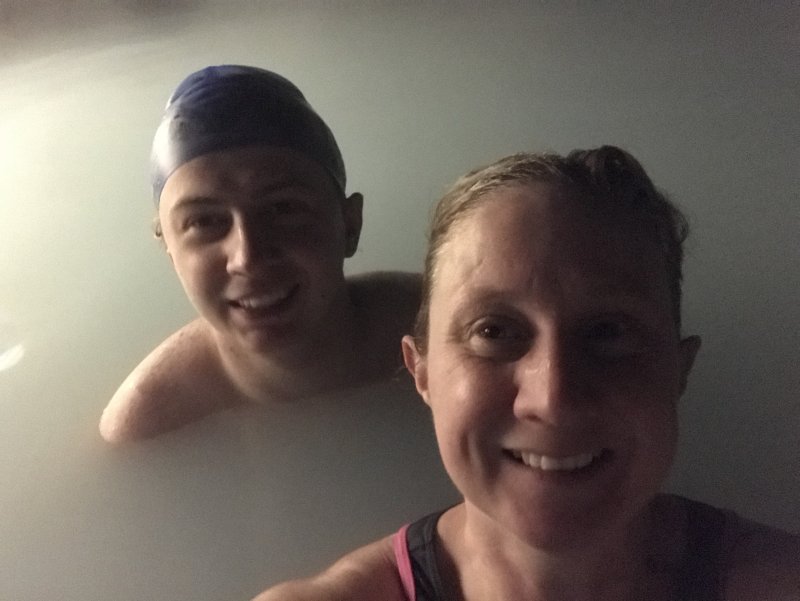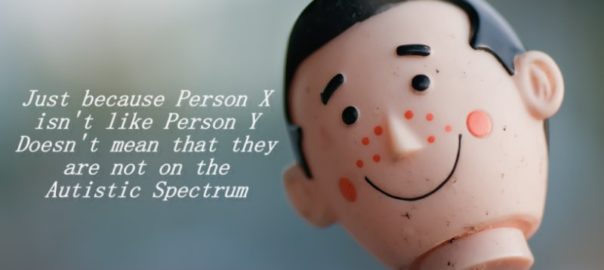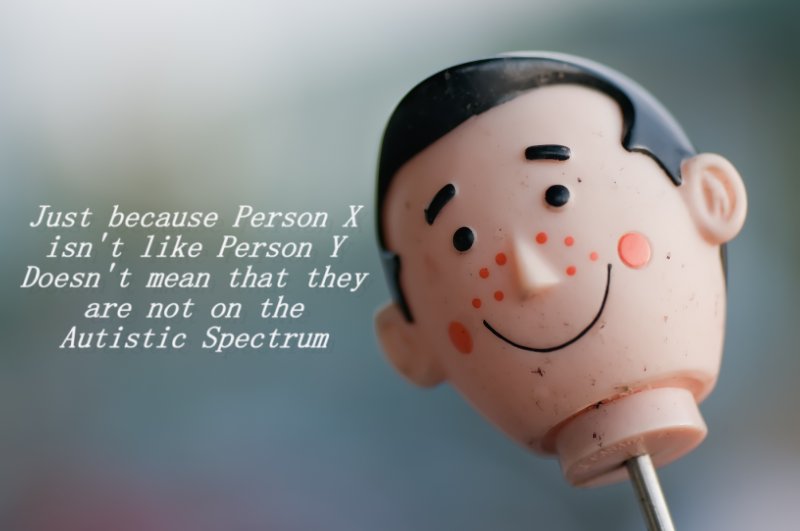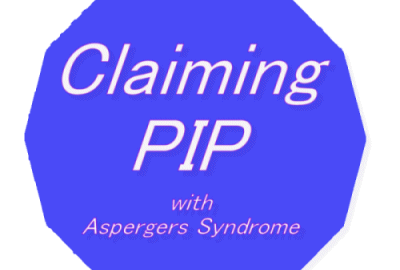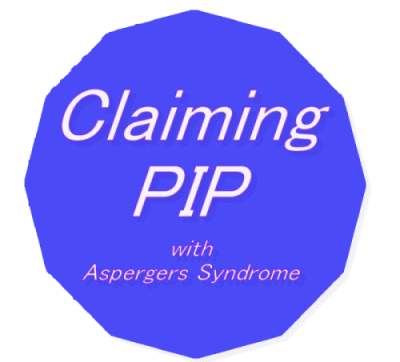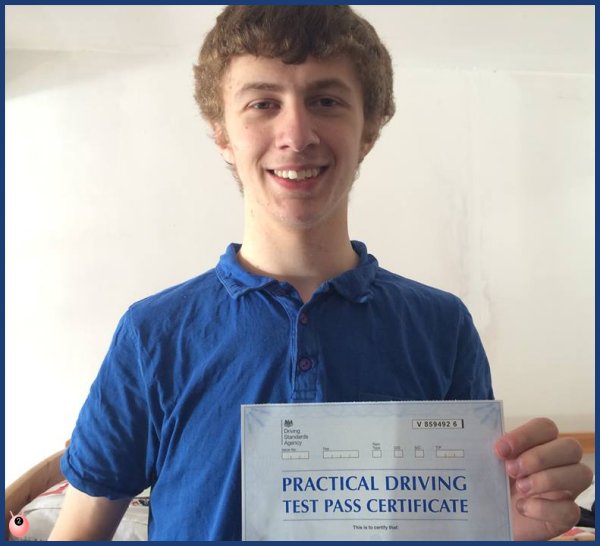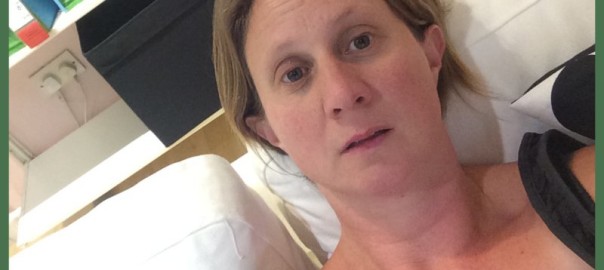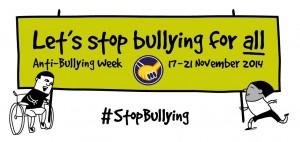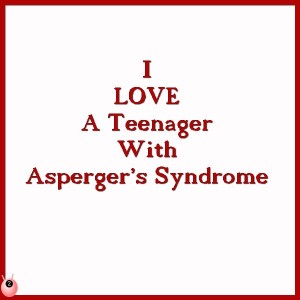When it comes to buying Christmas Gifts for those with Autistic Spectrum Condition I think that what it is easy to forget that the recipient still likes the same presents as other people. What may be different is that they may be a little more restricted in their likes and dislikes. It is important to remember that everyone is an individual, and this is definitely the case for those with Autistic Spectrum Condition. Although there are some things that seems to have a common element to them; with that in mind I asked some British Women with Asperger’s Syndrome for their thoughts on Christmas Gifts. Note that most of this will also apply to those with Sensory Processing Disorder but it was a bit of a mouthful putting both each time.
Buying Christmas Gifts for Indivudals with Autistic Spectrum Condition
I think it is important to remember that just because you like certain Christmas Gifts then this does not mean that someone else will too. Some of the women with Asperger’s Syndrome expressed how actually they really would rather not have any Christmas gifts at all, than the wrong ones. That mountains of Christmas gifts can be overwhelming – especially for those who are sensory avoiders – with all that colour being be too much! Some even prefer no gifts at all, not wanting their space to be filled with something they do not want or need. Not wanting to waste money for the sake of it. Instead why not club together with other members to buy one perfect present. However, something small and appropriate is better than spending lots of money for the sake of it. Something homemade/handmade is a nice idea or what about an experience or day out – even better still accompany them on it to help reduce any anxiety.
The Christmas Gift of Alone Time
Sometimes those with Autistic Spectrum Condition may find the best Christmas Gift is that of some alone time. This may be just to shut off from the world, to cope with a meltdown, or to relax, for example. This could be a place to hide (like a tent), or a trip away to a spa/night away, or even just back to some bath products for them to find some peace. Again how you decide on the perfect time alone will depend on the individual’s needs. Personally I need to sleep to cope with the changes that Christmas brings, it is what helps me to reset – and therefore some nice new pjs are perfect for this! (with the right textures of course, I hate those hot fluffy tops!)
Giving the Wrong Christmas Gift to the Individual with Autistic Spectrum Condition
Giving someone with autistic spectrum condition the wrong Christmas gift can be even more stressful than not getting them a present at all. They may feel that they have to pretend to like it or be called ungrateful for not being happy with the givers choice. This may ruin their Christmas as they try to hold it in until they end up having a meltdown about it. That is if it doesn’t eat away at them for months because they want to be grateful and are thrilled someone has put so much thought into it- but they really don’t like it! Often generic gifts are unwelcome and they may then hate how unwanted Christmas gifts clutter up their home. This can leave them feeling really anxious about what they are supposed to do with them and find it hard to get rid of. This could especially be the case if the gift is useful but they just have too many of them (like socks!). Again presents that interfere with their Sensory needs will be unwelcome even if well meaning – such as smells they have not chosen (shampoos, perfumes, candles, etc); foods (which may be too rich, or not spicy enough); make-up (which may not have the right texture) and jewellery (again the touch and visual being not to their liking).
Christmas Gifts Guide for Someone with Autistic Spectrum Condition
Christmas Gifts Based on Special Interests
The individual with Autistic Spectrum Condition often has special interests which will make it easier in finding Christmas gifts that they will like. It may be clear what their special interest is and then you just need to ask yourself whether they already have said item related to that gift – and if so would they like another! Books about their main interest is often an item to avoid because if they wanted it then they would most likely have already read it. It may be hard to get the individual with Autistic Spectrum Condition to wait for Christmas to receive something because they may just want something when it is available (I struggle with this particular with my oldest son with Asperger’s Syndrome and his special interest of computer games, which are released around a month before Christmas!). If they don’t want a duplicate item then make it easy for them to return it with a gift receipt – which will also help make it clear that you won’t be offended if it isn’t what they wanted.
 Don’t get hung up about age-appropriateness of the gifts either – if they still like Thomas the tank engine in their teens then why try to dictate that they have something else? It’s about developmental appropriateness and where that individual is at. Surely Christmas is a time for happiness. Again consider whether such an item is suitable for their sensory, verbal, gross and fine motor levels of development. For example, it does not matter how old someone is, if they are still putting everything in their mouths then small pieces of LEGO are not ideal, nor are they any good for someone without good fine motor control (although they could help with developing it). Board games may be too complex cognitively for their age even though they state that they should be able to play it – but then can it be adapted. . If it is a child that you are buying for then it is easy to check with their parents.
Don’t get hung up about age-appropriateness of the gifts either – if they still like Thomas the tank engine in their teens then why try to dictate that they have something else? It’s about developmental appropriateness and where that individual is at. Surely Christmas is a time for happiness. Again consider whether such an item is suitable for their sensory, verbal, gross and fine motor levels of development. For example, it does not matter how old someone is, if they are still putting everything in their mouths then small pieces of LEGO are not ideal, nor are they any good for someone without good fine motor control (although they could help with developing it). Board games may be too complex cognitively for their age even though they state that they should be able to play it – but then can it be adapted. . If it is a child that you are buying for then it is easy to check with their parents.
You may be interested in my Christmas Gift Guide for Pokemon Fans and LEGO Christmas Gift inspiration.
Clothes as Christmas Gifts for those with Autistic Spectrum Condition
Clothes can be a really complex area when considering buying Christmas gifts for someone with Sensory Processing Disorder and/or Autistic Spectrum Condition. This may be due to knowing exactly their needs – are they are sensory seeker or sensory avoider? Do they like a tight or lose fight? What is the feel of the material like? How does the visual of the item make them feel? Where are the seams and labels? Is it soft or scratchy? How much of the skin do they touch? Do they have problems with the fit (too tall/too short)? Clothes as Christmas Gifts could annoy some people with Autistic Spectrum Condition, seeing it as rude and assumptions to determine what someone else should wear, whereas someone else might love to get right the right piece (such as some over the knee socks!) – so it is really important to think about their individual likes).
 I remember my mom being surprised when I HATED the leggings she bought me with the gold spots on because I LOVED the top that was exactly the same – but to me it wasn’t and it made me feel ill. Likewise now I cannot find a pair of jeans I like for love nor money (they have changed the design and they are really tight on my legs), and I have worn jeans for as long as I can remember! I don’t like change and that is the same when it comes to clothes. I also like clothes that are practical – big pockets, zip pockets so I do not have to carry a bag with me. Plus I hate long sleeves as I get hot easily.
I remember my mom being surprised when I HATED the leggings she bought me with the gold spots on because I LOVED the top that was exactly the same – but to me it wasn’t and it made me feel ill. Likewise now I cannot find a pair of jeans I like for love nor money (they have changed the design and they are really tight on my legs), and I have worn jeans for as long as I can remember! I don’t like change and that is the same when it comes to clothes. I also like clothes that are practical – big pockets, zip pockets so I do not have to carry a bag with me. Plus I hate long sleeves as I get hot easily.
Practical and Sensory Christmas Gifts for those with Autistic Spectrum Condition
As I said I love things that are practical – anything that makes my life easier. That said there’s a thin line between a thoughtful useful gift and me being insulted (I would go mental if anyone bought me the pots and pans we need as it is like it is implying I should be cooking, rather than being something for me personally). You need to once again think about the individual person, especially if they have sensory needs.For example I really do like expensive shampoo, conditioner and body washes as they are things that I use anyway but have a touch more luxury (as long as they smell okay, as the wrong smells can make me feel sick). This seemed to be common with the other ladies on the Autistic Spectrum who enjoyed getting toiletries IF they were the right ones – don’t assume and buy the wrong ones. Lush products seem to be popular with their glittery colourful bath bombs, particularly as so many of the ladies with Asperger’s Syndrome found the shop hard to navigate with the overpowering of too many smells and colours, and pushy shop assistants wanting to speak to them. Again remember this will not apply to every individual with Autistic Spectrum Condition.
 Of course Sensory Christmas Gifts may be very welcome offerings for those with Sensory Processing Disorder and/or Autistic Spectrum Condition and could help improve their lives. Sensory enriching products include pretty lights (fairy, ones for the bath, lighting up the ceiling and walls, colour changing objects, projectors and salt/lava lamps); things with nice textures (pillows, teddy bears); a bubble machine; art equipment (visually pleasing and allowing the individual to be creative); a range of fiddle toys and noise cancelling headphones (although I just have wireless headphones and I play music through them and this works well for myself).
Of course Sensory Christmas Gifts may be very welcome offerings for those with Sensory Processing Disorder and/or Autistic Spectrum Condition and could help improve their lives. Sensory enriching products include pretty lights (fairy, ones for the bath, lighting up the ceiling and walls, colour changing objects, projectors and salt/lava lamps); things with nice textures (pillows, teddy bears); a bubble machine; art equipment (visually pleasing and allowing the individual to be creative); a range of fiddle toys and noise cancelling headphones (although I just have wireless headphones and I play music through them and this works well for myself).
For children with Sensory Processing Disorder and/or Autistic Spectrum Condition some practical things that they may love (dependent on age and ability) are a trampoline, bicycle/scooter, LEGO and board games – as the former are great for getting them moving (beneficial to both sensory seekers and sensory avoiders); and the latter develops fine motor skills, patience, following instructions and even turn taking.
Getting it Right when Buying Christmas Gifts for Someone with Autistic Spectrum Condition
The biggest suggestion given for buying Christmas gifts for Someone with Sensory Processing Disorder and/or Autistic Spectrum Condition is to just ask what they like instead of assuming that they are all a hive-mind who like the same things. Many people on the Autistic Spectrum like routine and therefore changes are not welcome, so do not obsess that presents must always be surprise. Maybe have a traditional gift, that you know they like, and can give every year. Something practical like a calendar maybe (of their special interest). But then do bear in mind that if they suddenly do not receive it then this can also cause some issues.
 Another idea is to look at their wish list, that way there is still an element of surprise but in a controlled way that means they will still receive something they like. This can be done either by creating an online wishlist (like on Amazon) or they could print off specific pictures of Christmas Gifts they want. Those with Autistic Spectrum Condition may be aware that they are difficult to buy for and therefore would not be offended if you decided to play it safe with a gift card; as long as you do not get it wrong. Does anyone like being told what to do or where to shop? So make sure you know that they would appreciate a specific store to spend their gift card at. Clothes shops (see above) are usually not a good idea. Instead why not buy Gift Cards which can be used at many different places/buy a variety of things – such as Amazon gift cards or Love 2 Shop Vouchers. But do not be afraid to give money especially if it what they have asked for – as this may anger them, especially if they are trying to save up for something. Alternatively you could use a pre-paid debit card.
Another idea is to look at their wish list, that way there is still an element of surprise but in a controlled way that means they will still receive something they like. This can be done either by creating an online wishlist (like on Amazon) or they could print off specific pictures of Christmas Gifts they want. Those with Autistic Spectrum Condition may be aware that they are difficult to buy for and therefore would not be offended if you decided to play it safe with a gift card; as long as you do not get it wrong. Does anyone like being told what to do or where to shop? So make sure you know that they would appreciate a specific store to spend their gift card at. Clothes shops (see above) are usually not a good idea. Instead why not buy Gift Cards which can be used at many different places/buy a variety of things – such as Amazon gift cards or Love 2 Shop Vouchers. But do not be afraid to give money especially if it what they have asked for – as this may anger them, especially if they are trying to save up for something. Alternatively you could use a pre-paid debit card.
Opening the Christmas Gifts with Individuals with Autistic Spectrum Condition
Those with Autistic Spectrum Condition may feel uncomfortable being watched opening their Christmas Gifts. This is because people with autistic spectrum condition may struggle with emotions – including hiding their own. It might not even be anything to do with the gift itself but, as mentioned, many do not like surprises. Or it could be a case of their expression not matching what they would like to communicate. The anxiety of the “wrong present-face” may make them not want to open their presents at all. An example I was given was someone who was opening a perfectly lovely present got sticky-tape under their nail and pulled a, “ewww gross horrible!” face and was scolded for it.
Thank you to all the ladies with Asperger’s Syndrome who helped me to compile this article. If you have any further insights I would love to hear them. And a Merry Christmas to you all.
Related Posts of Interest:

